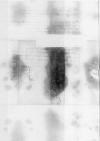List #5725
Sigismund I Jagiellon do Ioannes DANTISCUSCracow (Kraków), 1546-03-09
| odebrano Heilsberg (Lidzbark Warmiński), 1546-03-27 Rękopiśmienne podstawy źródłowe:
Pomocnicze podstawy źródłowe:
| ||||||||||
Tekst + aparat krytyczny + komentarz Zwykły tekst Tekst + komentarz Tekst + aparat krytyczny
Reverendo in Christo Patri et Domino Ioanni, episcopo Var stain⌈[Reverendo in Christo Patri et Domino
Reverende in Christo Pater, sincere nobis dilecte.
Quae scribit ad nos Paternitas Vestra de bonis Pucensibus, ea grata nobis acciderunt, verum deliberatum nobis est ipsis bona Pucensia possidere, pecuniam vero decretam Gedanensibus numerare. Qui, si in officio fuerint, fieri potest, ut nostra aut successorum nostrorum benignitate deinceps aliquando ad paper damaged⌈[ad]ad paper damaged⌉ ea bona redeant.
De
De moneta gratum est nobis consilium Paternitatis Vestrae, ex stain⌈[ex]ex stain⌉ cuius multiplicatione ne quid detrimenti
Cupimus Paternitatem Vestram bene valere.
Ad mandatum sa stain⌈[sa]sa stain⌉crae maiestatis regiae proprium stain⌈[prium]prium stain⌉


 BNW, BOZ, 953, f. 258v
BNW, BOZ, 953, f. 258v